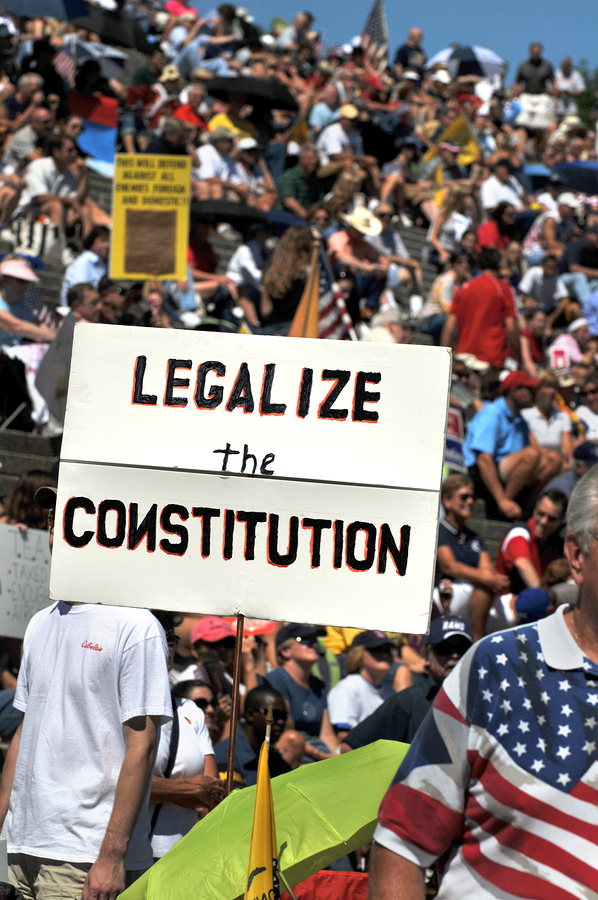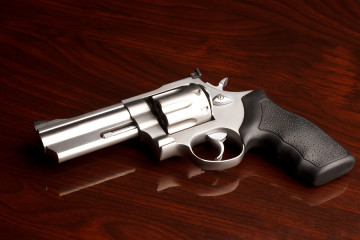Guns Rights Kill Gun Safety Every Time: Francis Wilkinson

©2015 Bloomberg View
NTYRPF6JTSEE
(Bloomberg View) — Lori Rodriguez wants her guns. The city of San Jose wants to keep its citizens safe. The conflict between them, now in federal court, is in many ways the crux of gun politics in the U.S.
In January 2013, police responded to a call from the Rodriguez home after Lori’s longtime husband, Edward Rodriguez, exhibited signs of distress and erratic behavior, according to the Rodriguez legal complaint filed against the city and its police force in August. He was taken by ambulance to the hospital for evaluation.
Together, the Rodriguezes possessed 12 guns. Edward’s hospitalization resulted in a psychiatric hold, which prohibited him from possessing firearms for five years. Police removed the guns from the residence over Lori’s objection. Lori, with support from gun-rights groups, is now suing to get the guns back. She says she will store them in a locked safe to which she alone will have access. Her husband, however, will be right there in the house with her.
In a previous state trial in which the city’s right to withhold the guns was upheld, a judge summarized the police encounter with Edward:
When Officer Valentine asked Edward if he wanted to hurt himself, Edward responded by attempting to break his own thumb. Based on his observations and Edward’s attempt to hurt himself, Officer Valentine determined that Edward, who weighed nearly 400 pounds, was a danger to himself and others.
The city still won’t turn the guns over. “Are we acting with an abundance of caution? Yeah,” city attorney Rick Doyle told the local NBC affiliate. “We’re concerned about somebody having access to firearms who shouldn’t.”
That pretty much sums up the view of blue-state America, where the priority is keeping guns out of the hands of people who might be dangerous — even if that leads to inconvenience or an occasional bureaucratic mistake. But if you’re the sort of person who thinks it’s perfectly normal to own 12 guns, the phrase “abundance of caution” can translate as “running roughshod over constitutional rights.”
The Ring of Fire blog on the website of a California attorney spells out the fear. “When the law imposes restrictions on the fundamental right to keep and bear arms due to ‘mental illness,’ does the government’s definition of the term mesh with the common understanding?” says a post on the blog. “California paints with a broad brush regarding its restrictions on firearm ownership by the ‘mentally ill.'”
There are many reasons why the nation bangs its collective head against the wall each time a lunatic opens fire. But the punctuation in that post hints at one. As soon as the context is guns — buying them, selling them, storing them, bearing them, firing them — the people who feel most passionately about gun rights find cause to put quotation marks around words like “mental illness,” as if mental illness is itself a figment of some gun-control advocate’s imagination.
Yet the dangerous nexus of mental illness and guns is not in our heads. The ease of access to firearms extends both to criminals, who can buy at will in the vast unregulated marketplace, and to the mentally ill, who unless they have been committed and have had their names officially included on a list prohibiting purchases, will generally pass background checks — no matter how violent the delusions of the night before.
When a Missouri gun shop sold a handgun in 2012 to a paranoid schizophrenic even after her mother had asked the store not to, the customer brought her new gun home and shot her father dead. The mother sued the shop, but in all likelihood it’s the shop that has the law on its side, not the grieving widow.
While Lori Rodriguez waits to get her old guns back, she is free to purchase new guns and store them at home. That, her attorney Don Kilmer said in an e-mail, “is why keeping her property from her is irrational.” The demand for frictionless gun sales and unfettered possession is broadly accommodated by the law. Even California is perpetually behind in trying to keep track of dangerous people with access to firearms. In the U.S., there simply is no contest between gun rights and public safety.
This column does not necessarily reflect the opinion of the editorial board or Bloomberg LP and its owners.
To contact the author of this story: Francis Wilkinson at fwilkinson1@bloomberg.net To contact the editor responsible for this story: Zara Kessler at zkessler@bloomberg.net
For more columns from Bloomberg View, visit http://www.bloomberg.com/view







No Comment